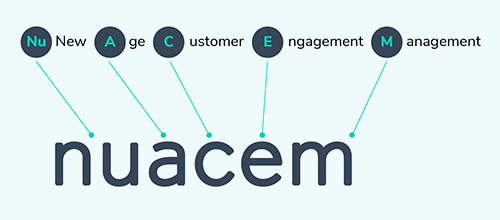The real estate world is changing, and it’s changing fast. In a world where consumers are increasingly tech-savvy, the industry needs to change with them. Real estate agents are no longer the only ones who can help you find your next home or apartment—AI is now a superpower that can help you find your dream home anywhere in the world.
An introduction to Conversational AI
Conversational AI is a subset of artificial intelligence that allows computers to communicate with humans through voice or text. It’s used in customer service, sales and marketing, and other industries.
IBM first developed conversational AI in the early 1990s as an alternative to traditional email automation systems like Eloqua. The idea behind conversational software was simple: instead of using canned responses like “Thanks for your order!”
Beyond the FAQ: Using Conversational AI to Power Customer Service in Real Estate
Unfortunately, the idea that conversational AI chatbots are the solution to enhancing customer experience is a fallacy. Customer experience is a holistic process that involves many aspects of the business and the customer, including product knowledge and understanding, social media engagement, and loyalty programs. A chatbot can only do so much in this area; it cannot replace all those other factors that contribute to creating an overall positive relationship between businesses and their customers.
What is Conversational AI in Ecommerce?
There are many ways to use conversational AI to improve customer service in the real estate world. One example is a real estate company that uses virtual assistants to help customers resolve their questions about homebuying and selling. A real estate agent who can use conversational AI to answer questions about the property market and pricing instantly (without having to search through hundreds of posts on Google).
In addition to these two examples, you could also build out your chatbot or voice assistant app for agents and other users within your organisation who need answers from time to time—including yourself!
Virtual Realtors: The Revolution in Real Estate
Virtual realtors are virtual real estate agents who can answer questions about the real estate market, schedule appointments and take calls. They can also help with transactions. Virtual agents will revolutionise the industry by replacing traditional agents with artificial intelligence (AI) technology. It can also automate real estate operations
Conversational AI: Impact on the Bottom Line
The bottom line is that conversational artificial intelligence will increase your sales and reduce costs. You’ll also see an increase in customer satisfaction, retention and loyalty.
Can Conversational AI Replace Real Estate Agents?
Conversational AI is not a replacement for agents. It can help agents do their jobs better but won’t replace them entirely.
AI Chatbots in Real Estate Industry can take on some of the real estate agents’ tasks, like setting up appointments and ensuring your clients are happy before closing the deal. The technology is also good at finding properties that meet your criteria and engagingly presenting them while keeping you informed about any relevant updates along the way—for example, if there’s been any new information about nearby homes on sale or coming soon that might interest you as well!
Innovative Use Cases of Conversational AI in Real Estate
Conversational AI is a powerful technology that has the potential to revolutionise real estate. However, it’s not just for agents anymore.
Virtual Realtors – As we move toward an omnichannel world and more people buy their homes online, virtual realtors have become a popular go-to option for buyers and sellers alike. Nearly half (47%) of Americans have used enterprise virtual assistants or brokers over the past five years—and 63% say they would use them again if given another chance! However, with so many options available today—from text messages to email chatbots—it’s easy for consumers to get confused about which platform works best for them when making their next purchase decision.
That’s why companies focus on creating automated customer experiences through artificial intelligence technology that can respond directly to customers without delay (and without ever having seen them before). For example, virtual Real Estate Brokerage helps to ensure that every interaction feels personal while giving agents valuable insight into what customers want after completing their purchase process.”
Conversational AI has the potential to revolutionise the real estate industry
Conversational AI has the potential to revolutionise the real estate industry. It will change how agents do business, interact with clients and customers, and interact with vendors.
The conversation between a real estate agent and a client is one of the most common interactions in today’s market. But, of course, the goal of any agent is to sell something—in this case, home or property—and as such, they must understand their customer’s needs before making an informed decision about what kind of home would best meet those needs.
When it narrows to it, though, there are many different types of people who need homes: first-time buyers; single parents looking for affordable places close enough where they don’t have much trouble getting around; families who want more significant properties or newer homes so they can grow old together while still enjoying everything life has to offer; empty nesters moving back into their childhood home after having raised kids elsewhere you get the idea!
Summing up
The real estate industry is changing rapidly. As a result, there are many ways in which advances in artificial intelligence and machine learning will impact the real estate industry over the upcoming years. Conversation between agent and customer becomes an omnichannel communication in the real estate industry.
One example of this is virtual agents who can answer questions from customers on their phone or computer screen without ever leaving home. This technology could enable you to work when you want without having to deal with long sales cycles or complex paperwork—and save time! Another possibility would be using natural language processing (NLP) techniques to allow agents to communicate more effectively with customers online by asking questions based on what they say instead of providing them answers immediately after being asked what they want to answer.”










